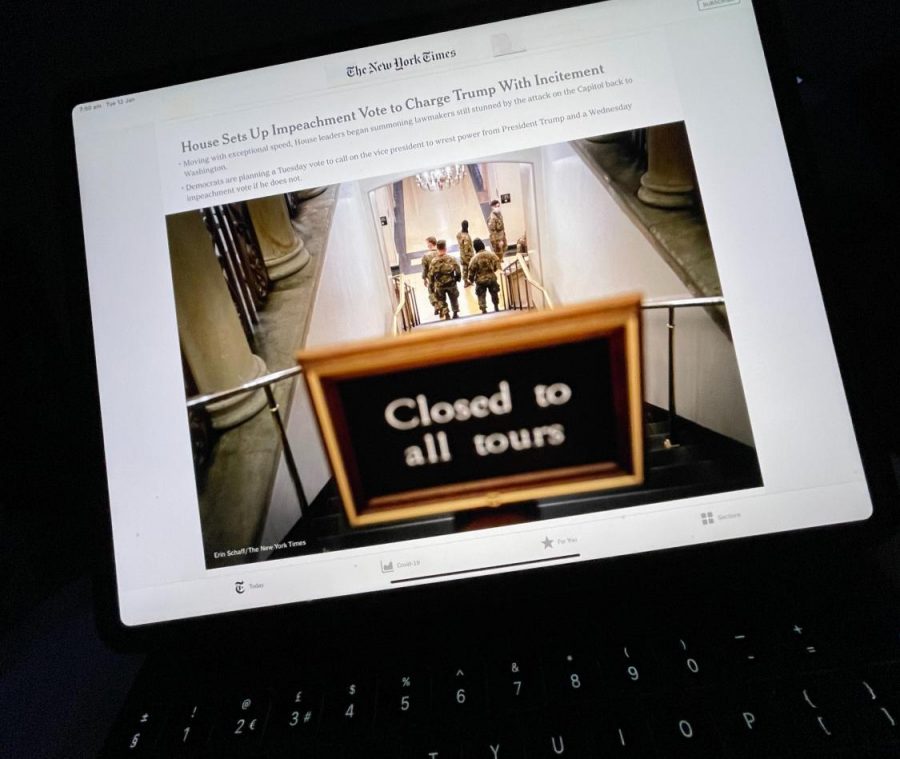Earlier this month former President Donald Trump was tried and acquitted in his second impeachment trial. Accused of inciting an insurrection against his own government, Trump became the first President in American history to be impeached twice and the first to face an impeachment trial after leaving office. The former President and his loyalists argued that the Senate no longer had jurisdiction to try him since he had left office, and, despite the most bipartisan “guilty” vote in history, they managed to get enough votes for acquittal. This decision set a dangerous precedent for the future that threatens the very core of our democratic system.
Trump did incite an insurrection against the U.S. government on Jan. 6, 2021 and, as such, Congress was right to impeach him. Several Republicans who voted to acquit the former President admit that he incited the insurrection, but hid behind the claim that they could not convict him once he left office. Even Senate Minority Leader Mitch McConnell said on the Senate floor after voting to acquit Trump that the former President was practically and morally responsible for the attempted insurrection.
The fact of the matter is Trump inspired a violent mob of his supporters to storm the U.S. Capitol, where they killed five people and injured many more. They did all they could to overturn the result of a fair and free election, and we all watched it happen live on television. Then 43 Republicans let him off on a technicality.
The argument that a president cannot be held responsible for their actions after leaving office is dangerous and disingenuous. When sworn in, the president takes an oath to preserve, protect and defend the Constitution from the moment they take office until the moment they leave. If they fail to do so, impeachment is the tool the Constitution provides to hold them accountable for their actions. There is no exception that a president who is soon to leave office no longer needs to uphold their oath.
Trump was President from 12 p.m. Jan. 20 of 2017 to 12 p.m. Jan. 20 of 2021 and had a duty to uphold his oath of office for every second of that time. He failed to do this, and by failing to hold him responsible, we are now setting a precedent that any future President can act with impunity between the time they’ve been voted out and the moment they leave office.
One of the founding principles of American democracy is the right to fair and free elections. Since John Adams peacefully left office after losing the election to Thomas Jefferson in 1800, we have celebrated the peaceful transition of power with each new president. Donald Trump spit in the face of this sacred practice, seeking for months to steal an election that he lost. By impeaching Trump we asked ourselves, “Will we defend the peaceful transition of power?” By answering no, we left the door wide open for someone to do this again.

















